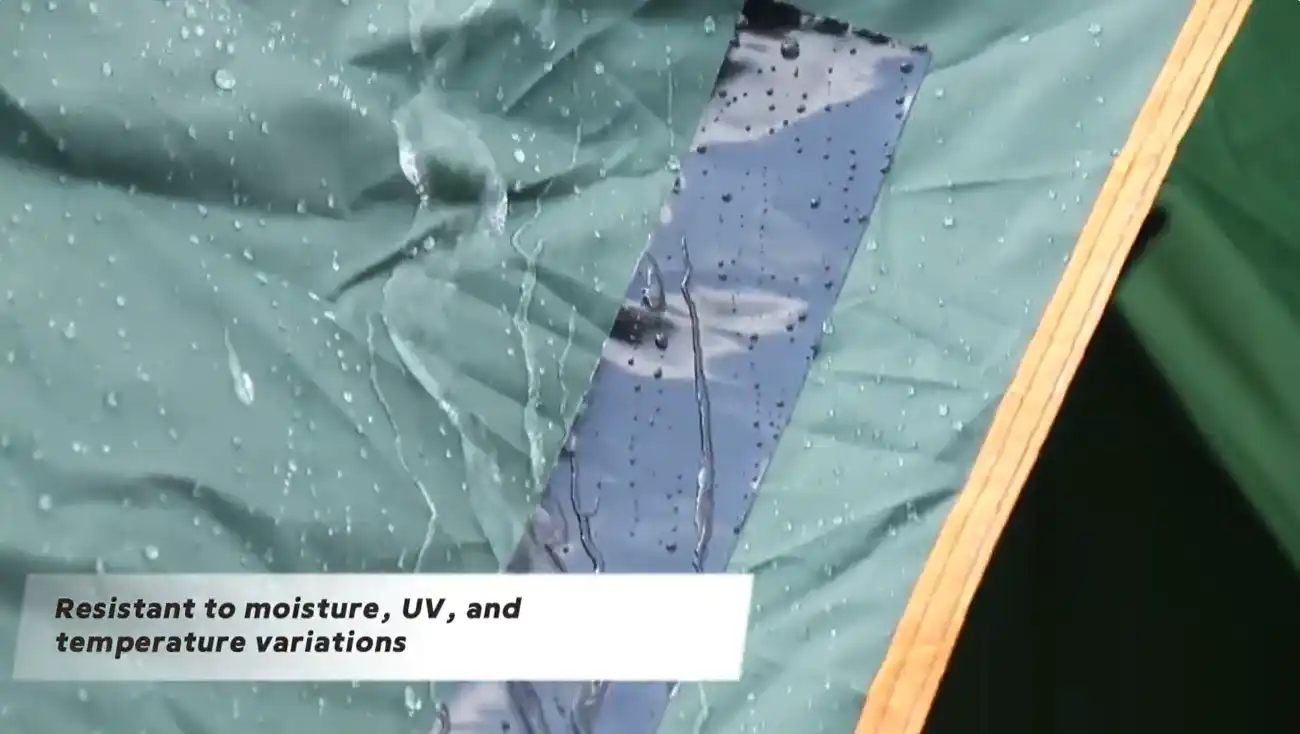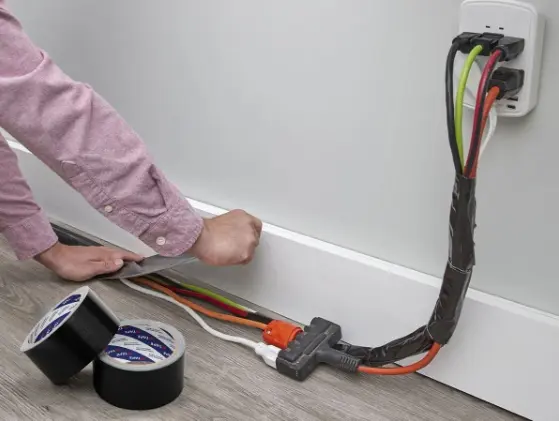Duct Tape Structure and Waterproof Properties: What You Need to Know




If you've ever found yourself in a pinch with a leaky pipe, a torn tent, or a cracked car hose, you've probably reached for the same trusty roll of duct tape. It's the go-to fix for countless quick repairs. But when water is involved, a critical question arises: Is duct tape truly waterproof? The short answer is: It's water-resistant, not fully waterproof.
But what does that really mean for your emergency repairs? This guide will dive deep into the science, practical applications, and limitations of duct tape in wet conditions, empowering you to make the right call when it matters most.
Understanding the "Waterproof" vs. "Water-Resistant" Conundrum
First, let's clarify the terminology, as this is where much of the confusion lies.
-
Waterproof means an item is completely impervious to water, regardless of immersion depth or time. Think of a sealed glass jar.
-
Water-Resistant means an item can repel water to a certain degree, such as resisting light rain or splashes, but it will eventually succumb to prolonged exposure or water pressure.
Duct tape falls squarely into the water-resistant category. Its ability to hold up against water depends on several factors, including the quality of the tape and the conditions of its application.
The Anatomy of Duct Tape: Why It Holds Up (and Why It Fails)
To understand its limitations, let's look at what duct tape is made of:
-
The Backing: Typically a mesh of cloth or scrim, coated with polyethylene (a type of plastic). This plastic layer is what provides the water resistance, acting as a barrier against moisture.
-
The Adhesive: This is usually a strong, rubber-based glue. It's fantastic for creating an instant, powerful bond on dry surfaces.
-
The Outer Coating: A final layer of plastic that protects the cloth backing.
The point of failure is rarely the backing itself. Instead, it's usually the adhesive. When exposed to moisture:
-
The glue can soften and lose its grip.
-
Water can seep through the cloth mesh at the edges of the tape.
-
On uneven or dirty surfaces, the adhesive cannot form a perfect seal, creating micro-leaks.
In a controlled test, a well-applied piece of duct tape might hold back water in a container for hours. But leave it for a day or two, or subject it to any water pressure, and you'll likely see the edges curl and water begin to penetrate.
Practical Guide: When to Use (and NOT Use) Duct Tape for Water-Related Repairs
Based on real-world experience and testing, here’s a practical breakdown.
Good Uses for Temporary, Water-Resistant Repairs:
-
Emergency Pipe Leak: As a last-resort fix to slow a drip from a pipe until a plumber arrives. Wrap it tightly, overlapping each layer by at least 50%.
-
Shelter in Rain: Patching a small hole in a tent, tarp, or rain jacket during a camping trip. It can get you through a night of light rain.
-
Sealing a Window Draft: Temporarily sealing the edges of a window against wind-driven rain.
-
Protecting Outdoor Gear: Sealing a cracked bucket or covering exposed connections on outdoor electrical cords (ensure power is off first).

Situations Where Duct Tape Will Likely Fail:
-
High-Pressure Leaks: Never use it on a burst pipe or a spraying hose.
-
Prolonged Immersion: It is not suitable for repairing items that will be submerged in water, like a boat hull or a fish tank.
-
Critical Repairs on Valuable Gear: Don't trust it as a permanent fix for expensive outdoor equipment like a wader or a high-end backpack.
-
Very Dirty, Oily, or Wet Surfaces: The adhesive will not stick properly, rendering the water resistance useless.
Pro Tip for Better Application: For the best water-resistant seal, ensure the surface is as clean, dry, and smooth as possible. Apply the tape under tension and press firmly along the entire strip, especially the edges. For added security, apply a second layer over the first.
Curious to test the difference a high-quality tape can make? We offer a limited number of free samples for our readers to try on their own DIY projects. [Click here to request your free sample and see the durability for yourself!]
Beyond the Roll: Introducing a Superior Solution from Yongguan
While generic duct tape has its place, for repairs that demand higher reliability, the quality of the tape makes all the difference. This is where Yongguan stands out. We don't just manufacture tape; we engineer solutions for durability and performance.
Yongguan's Heavy-Duty Water-Resistant Duct Tape is specifically designed to outperform standard rolls. We use a thicker, high-density polyethylene backing and a enhanced rubber-based adhesive that maintains its grip even in humid conditions. Independent tests show that our tape maintains its adhesion and water-resistant properties significantly longer than common retail brands, making it the smart choice for your critical emergency kits and professional projects.

Our Commitment to Quality: The Yongguan Factory
Behind every roll of YG tape is a state-of-the-art manufacturing facility certified to strict international quality standards (including ISO 9001). Our factory employs a fully automated production line and rigorous quality control checks at every stage—from raw material inspection to final packaging. This ensures that every roll you buy delivers consistent, reliable performance. We are committed not only to product excellence but also to sustainable manufacturing practices, minimizing our environmental footprint.
Conclusion: Be Prepared, Repair Smart
So, is duct tape waterproof? No, but it's a highly useful, water-resistant tool for quick, temporary fixes. Knowing its limits is key to using it effectively. For peace of mind in your most important repairs, choosing a high-quality tape from a trusted manufacturer is essential.
Don't let a minor leak turn into a major headache. Equip your toolbox with reliable solutions.
Ready to upgrade your repair kit? Contact us today to learn more about Yongguan products and our bulk order options. If you're a business or serious DIYer, [fill out our quick form to see if you qualify for a free professional-grade sample]. Solve your repair challenges with the confidence that comes from using a superior product.








